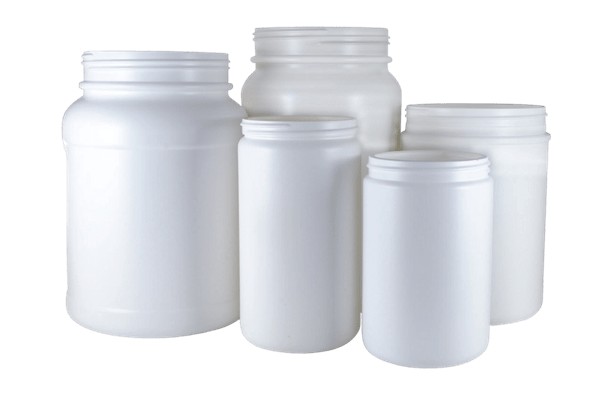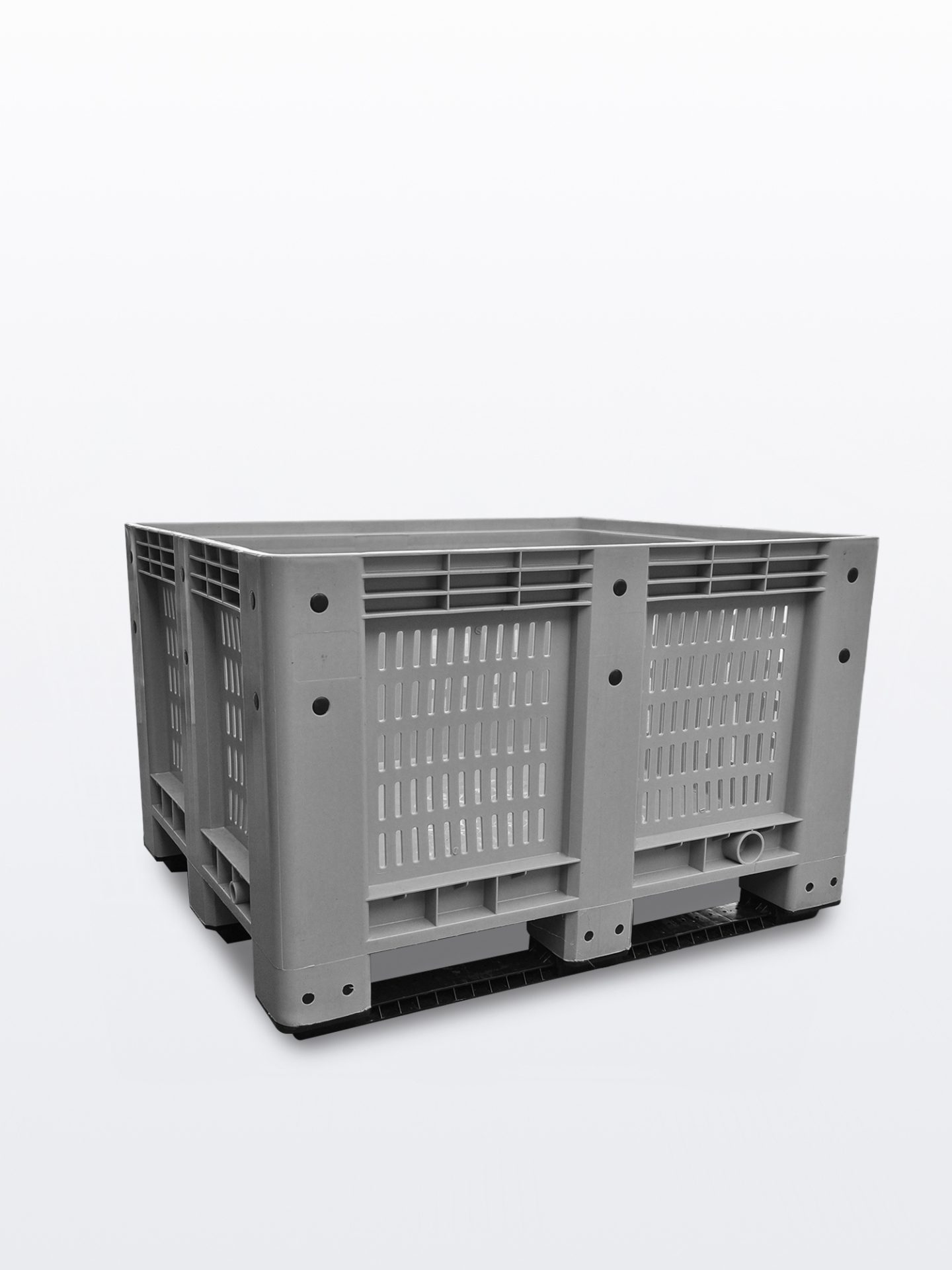A complete guide to choosing the right Bulk Plastic Containers for your business
A Comprehensive Overview to the Various Kinds Of Bulk Plastic Containers Available Today
Bulk plastic containers play an essential role in numerous sectors, offering remedies for storage space and transportation. Their varied kinds deal with various requirements, from inflexible alternatives for solid materials to versatile containers fitting different shapes. Each kind offers distinctive benefits, making it essential to understand their applications and features. As sectors advance, so do the needs for reliable container options. What aspects should one think about when selecting the appropriate bulk container?
Overview of Mass Plastic Containers

Kinds of Bulk Plastic Containers
Mass plastic containers can be found in numerous kinds, each matched to specific applications. Stiff bulk containers, adaptable bulk containers, and intermediate mass containers represent the main classifications, each offering special benefits. Understanding these types is crucial for selecting the best container for delivering and saving products.

Inflexible Bulk Containers
Inflexible bulk containers are important for reliable storage and transportation of different products across markets. These containers are normally created from long lasting plastics, enabling them to stand up to extreme handling and ecological conditions. They come in various shapes and dimensions, consisting of bins, totes, and drums, making them suitable for storing every little thing from granular materials to fluids. Inflexible containers often feature enhanced wall surfaces and secure covers, ensuring the materials continue to be protected throughout transit. Their stackable layout makes best use of storage room, making them ideal for storage facilities and manufacturing facilities. Furthermore, numerous rigid bulk containers are reusable and recyclable, adding to sustainability initiatives. Overall, their toughness and convenience make inflexible bulk containers a crucial component in supply chain procedures.
Adaptable Bulk Containers
Flexible bulk containers, often described as flexible intermediate mass containers (FIBCs), work as a functional option for delivering and keeping a variety of completely dry products. These containers are commonly made from woven polypropylene and are developed to be light-weight yet strong, permitting effective handling and piling. Their versatility enables them to suit various forms and dimensions, making them appropriate for items ranging from grains to chemicals. FIBCs can be equipped with attributes such as spouts for easy dental filling and discharge, as well as protective layers for enhanced resilience. Furthermore, they are multiple-use and recyclable, adding to sustainable methods in sectors like agriculture, food handling, and construction. In general, versatile mass containers provide a cost-efficient and reliable choice for mass product management.
Intermediate Bulk Containers
Intermediate bulk containers (IBCs) are necessary for the reliable transport and storage of fluids and granular products throughout numerous sectors. These containers generally have a capability varying from 275 to 330 gallons and are created for easy managing and piling. Made from sturdy products like high-density polyethylene or steel, IBCs offer outstanding security against contamination and ecological factors. Their design includes attributes such as an integrated pallet for forklift accessibility and a removable top for simple filling and cleaning. IBCs are widely used in chemical, food, and pharmaceutical fields, ensuring conformity with safety policies. Their flexibility and reusability make them a cost-efficient remedy for mass storage space and transport, contributing to supply chain efficiency and sustainability.
Features and Advantages of Mass Plastic Containers
Bulk plastic containers are necessary devices in numerous sectors, offering a mix of resilience and practicality. These containers are constructed from high-grade materials, making them immune to impacts, chemicals, and environmental factors. This robustness guarantees product safety and security throughout storage space and transport.
In addition, bulk plastic containers are lightweight, assisting in simplicity of lowering and handling delivery prices. Their stackable layout maximizes storage space efficiency, enabling for optimized storehouse space. Several designs include safe lids or closures, giving a closed seal that protects components and prevents contamination.
Bulk plastic containers are recyclable and often recyclable, adding to sustainable methods. Their flexibility enables a wide variety of applications, from food storage space to industrial usage, enhancing their value throughout fields. Businesses profit from the long life-span and low maintenance requirements of these containers, making them a cost-efficient solution for both long-lasting and temporary demands.
Industries That Make Use Of Bulk Plastic Containers
Various industries take advantage of the use of mass plastic containers, each leveraging their one-of-a-kind properties for particular applications. The food and beverage industry relies upon these containers for risk-free storage space and transportation of items, while the chemical production field uses them for managing dangerous products. Furthermore, the pharmaceutical circulation requires highlight the value of toughness and cleanliness in product packaging options.
Food and Beverage Sector
As the need for efficient and safe storage space remedies remains to rise, the food and beverage sector increasingly counts on mass plastic containers for their functional needs. These containers offer robust, lightweight, and functional options for keeping ingredients, ended up products, and waste products. Made from food-grade products, they assure compliance with wellness and safety and security criteria. Numerous styles, such as stackable containers and tote boxes, maximize area throughout transportation and storage space, improving logistical efficiency. Additionally, the openness of some mass containers enables easy stock administration, decreasing the risk of perishing. With the market's focus on sustainability, many suppliers are now offering recyclable and recyclable alternatives, straightening with environment-friendly practices while satisfying the high demands of food safety and health.
Chemical Manufacturing Market
The chemical manufacturing sector counts greatly on mass plastic containers for the risk-free and efficient storage space of basic materials, intermediates, and completed items. These containers are developed to hold up against various chemicals, ensuring that harmful materials do not leak or weaken the container itself. Common kinds include high-density polyethylene (HDPE) and polypropylene containers, which use outstanding chemical resistance and resilience. Their light-weight nature and stackable design look at this now assist in transport and storage, maximizing space in producing centers. Additionally, lots of mass plastic containers come with features such as tamper-evident seals and easy-to-read labeling, improving safety and security and conformity with industry policies. Generally, mass plastic containers are integral to the chemical manufacturing process, supplying trusted services for dealing with varied materials.
Drug Circulation Demands
Drug circulation relies on bulk plastic containers to meet strict security and governing demands. These containers are necessary for storing a variety and transferring of pharmaceutical products, including active pharmaceutical components (APIs) and completed medicines. Their layout warranties defense versus light, contamination, and moisture, keeping the honesty of delicate products. In addition, mass plastic containers are compliant with market standards such as Excellent Production Practices (GMP) and are usually made from products that are FDA-approved. The use of these containers enhances performance in the supply chain, enabling safe, large distribution while minimizing waste. Firms in the pharmaceutical field focus on making use of sturdy, watertight, and tamper-evident containers to ensure product safety and security and high quality throughout the logistics process.
Factors to consider for Choosing the Right Container
When selecting the appropriate mass plastic container, different factors must be meticulously evaluated to ensure ideal capability and security. The nature of the products to be kept is paramount; compatibility with the container's product can influence integrity and security. plastic bulk containers. Additionally, the container's dimension and shape need to align with the storage space and transportation demands, assuring reliable area utilization
Tons capacity is an additional important factor to consider, as it must accommodate the weight of materials without risk of damages or failing. The style attributes, such as venting or lids, can affect functionality and accessibility. Conformity with market laws is crucial, particularly in industries like drugs, where security criteria are stringent.
Lastly, the expected life expectancy and sturdiness of the container should be assessed to confirm it satisfies the functional demands without frequent replacement. By evaluating these elements, one can choose one of the most appropriate mass plastic container for details applications.
Environmental Impact and Sustainability
As services progressively focus on sustainability, the ecological influence of bulk plastic containers has come under scrutiny. These containers, commonly made from products such as polyethylene or polypropylene, add considerably to plastic waste if not taken care of effectively. Their manufacturing entails the consumption of fossil fuels, which can result in enhanced greenhouse gas discharges. Nevertheless, developments in recycling technology and the development of biodegradable choices site link are aiding to alleviate these issues.
Moreover, several makers are embracing practices that emphasize making use of recycled products, consequently decreasing the demand for virgin plastics. The durability of mass plastic containers likewise contributes; they are designed to be recycled multiple times, which can decrease their general ecological impact when compared to single-use choices. Inevitably, the industry encounters the challenge of stabilizing functionality with eco-friendly responsibility, making lasting practices crucial for the future of bulk plastic containers.
Ideal Practices for Storage and Transport
Effective storage space and transportation of mass plastic containers significantly affect both functional efficiency and sustainability. To make the most of room, companies should pile containers safely, assuring stability and stopping damage. Appropriate labeling is essential for simple recognition, which improves access processes. Furthermore, keeping a organized and clean storage location decreases the danger of contamination and boosts safety.
For transportation, choosing the ideal vehicle is important; containers must be secured to prevent moving throughout transit. Companies ought to likewise take into consideration making use of pallets to facilitate simpler loading and discharging. Routine assessments of containers for damage can protect against pricey replacements.
Temperature control is another essential element, as severe conditions can compromise the stability of the plastic. Lastly, training workers on finest techniques for taking care of and transport warranties conformity and advertises a culture of safety. By executing these best techniques, businesses can boost their functional effectiveness while contributing to ecological sustainability.
Regularly Asked Concerns
Just how Do I Tidy Bulk Plastic Containers Efficiently?
To clean mass plastic containers successfully, one must rinse them with cozy water, utilize a light detergent and scrub with a soft brush. Rinse extensively, after that allow to air completely dry totally before storage space or reuse.
What Is the Life Expectancy of Bulk Plastic Containers?
The life-span of bulk plastic containers usually ranges from 5 to 10 years, relying on the material, use, and environmental problems. Appropriate upkeep and storage space can greatly expand their functionality and resilience with time.
Can Bulk Plastic Containers Be Custom-made?

Do Bulk Plastic Containers Have Service Warranty Options?

Exist Rules for Making Use Of Mass Plastic Containers?
Yes, laws check these guys out exist for using mass plastic containers, largely focused on security, environmental effect, and material compliance. These guidelines ensure that containers satisfy market criteria and appropriate for carrying numerous compounds safely and efficiently.
Rigid bulk containers, flexible mass containers, and intermediate mass containers stand for the key classifications, each offering special benefits. Versatile bulk containers, frequently referred to as flexible intermediate bulk containers (FIBCs), offer as a flexible solution for storing a selection and delivering of dry products. The chemical manufacturing sector depends heavily on mass plastic containers for the risk-free and reliable storage space of raw products, intermediates, and completed products. plastic bulk containers. These containers are created to endure various chemicals, making certain that harmful materials do not leak or break down the container itself. Furthermore, bulk plastic containers are certified with industry criteria such as Great Manufacturing Practices (GMP) and are usually made from materials that are FDA-approved